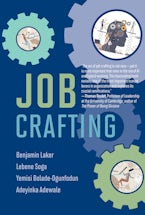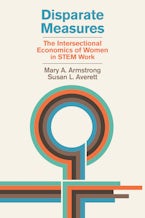A benchmarking trip made nearly two decades ago to Deere & Co.'s factories in the Quad-Cities helped inspire a new leadership book by former Boeing Co. executive Fred Stahl. In his book, Worker Leadership: America's Secret Weapon in the Battle for Industrial Competitiveness, Stahl theorizes that 'worker leadership'—giving workers significant involvement and leadership authority—can be a strategy for boosting productivity and, thus, help restore America's industrial power.
Quad Cities Business Journal
Worker Leadership offers an unusually broad array of case-history vignettes, biographical stories, and management insights for an equally broad set of potential audiences. It is as interesting and readable for the nonacademic business operations enthusiast as it is potentially useful for several levels of academic application.
Karl A. Hickerson
Perspectives on Work
I found Worker Leadership to be extremely insightful for both management and unions and a blueprint for how American companies can prosper. And I agree with Stahl that the way to ensure that they prosper is to put the intellect and experience of the workers in a true leadership role and to hold everyone accountable for the company's success. This is the future of American competitiveness and of organized labor.
James N. Kimball, Director, Economics and Contracts, International Brotherhood of Teamsters
Fred Stahl captures the very essence of workplace transformation. Engaging the minds of the workers and not just their hands rewards those corporations that have the courage to allow independent thinking by their workers. The American worker is intelligent, proud, independent, and extremely capable of self-governance. Fully utilizing the talents of the worker and changing the culture of the American management system are paramount to the success of revitalizing manufacturing in the U.S.
Cindy Estrada, Vice President, International Union, UAW
Wow. Here is a book that finally describes the real source for success in American business: a focus on workers, who have long been ignored in virtually every aspect of American life. Having read and reviewed hundreds of business and management books over the past three decades, I'm relieved to finally read one that describes a viable path for a firm's success, and with it, those who matter most, its workers.
Richard McCormack, editor and publisher, Manufacturing & Technology News
In Worker Leadership, Fred Stahl makes a convincing case that we need to look no further than the worker in the shop or office to unlock our full competitive potential. As he so clearly articulates, the workplace that values and fosters a safe, secure, trust-based environment, where everyone is able to create, learn, and grow together, will be the real winner globally. Worker Leadership is based on the practical idea that a system that enables workers to exercise their natural ability to improve will be the system in which workers find joy in their work, and subsequently continue to improve. This is a timely and much needed new work.
Carolyn Corvi, retired Boeing Vice President and General Manager-Airplane Programs
How can complex enterprises achieve and sustain business success? Drawing on extensive benchmarking of global industries, Fred Stahl has compiled an eleven-step model that describes combined worker and management leadership. This model has been successful in a number of organizations including John Deere; Boeing Defense, Space, and Security; Nucor Steel; and Southwest Airlines. It offers real promise for broader enterprise success.
Richard B. Lewis II, Chief Operating Officer (retired) Rolls-Royce Corporation, Indianapolis
Fred Stahl reminds us that management, workers, and unions all share a common interest in the success of the business. In his upbeat and practical book, he makes a compelling case for designing work that makes workers not 'reliable cogs' but leaders, with real production responsibility. Emphasizing the critical role that unions can play in this transformed culture, he shows how these shared interests can yield sustained improvements in performance and global competitiveness.
Wilma B. Liebman, former Chair, National Labor Relations Board
Change the culture before implementing operational improvements, but how? Worker Leadership gives an answer—implement the Theory of Worker Productivity developed by Dick Kleine at John Deere. Although the essential ideas of Worker Leadership are simple, too many managers don't 'get it.' Get this book and get it!
Earll M. Murman, Ford Professor of Engineering Emeritus, MIT; co-author of Lean Enterprise Value
(Kleine's) 'worker leadership', then, is lean manufacturing recalibrated and adapted for US culture, combining the efficiency and productivity of just-in-time production with system that enables workers to use their initiative with minimal supervision.
Capital & Class












